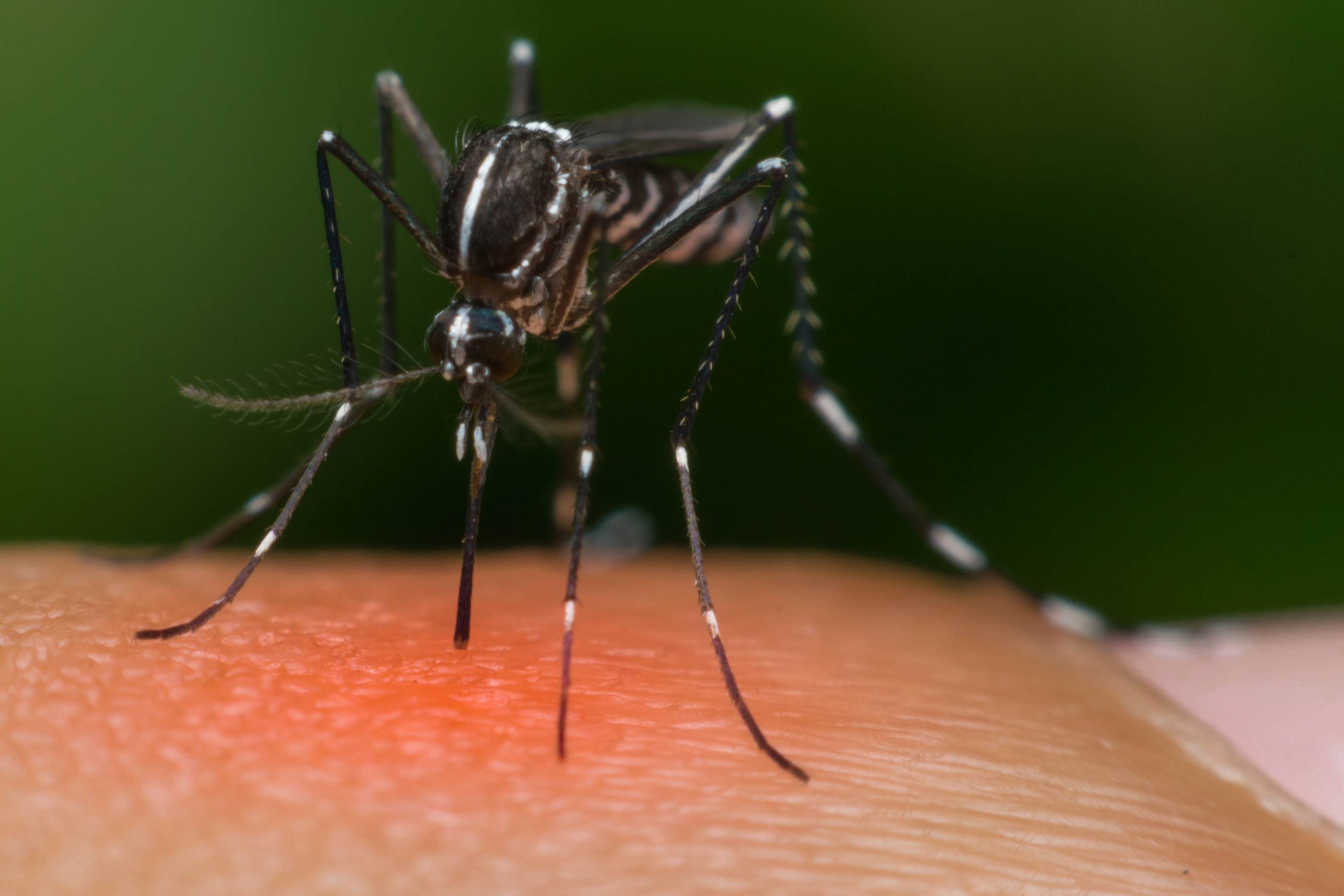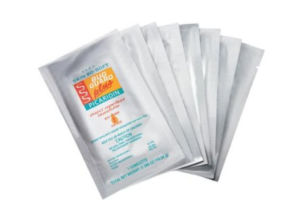Malaria, Hepatitis, Typhoid Fever? Getting The Right Medicine For A Trip To Africa

Malaria, Hepatitis A and Typhoid Fever are common ailments to be wary of when traveling to certain parts of the world. Contracting a disease like Malaria can lead to weeks of painful recovery. Get bitten by the wrong mosquito and you could be facing a couple weeks of fever, chills, diarrhea and vomiting. Sounds like a fun time, right?
This is part of my 18,000 Miles For Good series. I hope you’ll stay tuned for the rest of the posts:
- Getting Started On An 18,000 Mile 5-Day Journey
- Turkish Airlines Lounge At Washington Dulles
- SAS Scandinavian Airlines From IAD to CPH (Washington Dulles to Copenhagen)
- Touring UNICEF In Copenhagen: Getting Ready For Delivery
- Riding The Metro In Copenhagen: An Easy Way To Get To and From The Airport
- A Day In Copenhagen
- Norwegian Premium From CPH to JIB (Copenhagen to Djibouti)
- The Cockpit Experience! Taking Off From Athens to Djibouti
- Getting The Right Medicine For A Trip To Africa
- 3 Hours In Djibouti
- Qatar Airways JIB-DOH-DFW
This was my first trip to Africa, which meant I had some studying to do on how to properly protect myself from infection and disease. I’ve had other trips planned to regions where Malaria is present. And, a tick bite from a few years ago gave me some exposure to one of the common Malaria medications.
I used a combination of crowd-sourcing and Google to figure out the correct path for me. I was only going to be at risk for about a day, but I ultimately decided to protect myself. The 3 maladies I researched medications for were Malaria, Hepatitis A and Typhoid Fever.
Hepatitis A
What’s Hepatitis A? The CDC’s website is a great resource. The most common way to get Hepatitis A abroad is from food. If food handlers aren’t careful washing their hands, you could be in for weeks of misery.
I’m pretty much a wimp when it comes to needles, so I wasn’t too wild about adding Hepatitis A to my vaccine list. In the end, I sucked it up and got the injection. A few key points you should know:
- It’s generally believed the vaccine will last at least 25 years in adults.
- For full effectiveness, you’ll need to get 2 shots in a 6-month period.
- This shot hurt. A lot. It’s a lot of fluid. My nurse said, “I didn’t tell you how much it would hurt before because your doctor said you would chicken out if I told you.”
Given how long the vaccine is effective, you should get a Hepatitis A booster if you’ll be traveling overseas. Two visits to your doctor should prevent a pretty miserable experience.
Malaria
Malaria sucks. I’ve never had it but I know a couple of people who suffered through it. This was the one thing I was concerned about when traveling to Africa. Even though my trip was ridiculously short, it only took one enterprising mosquito to make it an unpleasant return. There are a number of different ways to approach Malaria prevention:
Medical:
There are a number of different medications available for Malaria. The CDC website is a solid resource (again) for these. I have experience with a few of them:
Doxycycline: Doxy, Doxy, Doxy. Sigh. This is a common treatment for the prevention of Malaria. I’ve taken it in the past, though for a tick bite, not Malaria. I have a pretty solid stomach and Doxycycline did a number on me. The big downside to Doxycycline is that you need to take it every day for 4 weeks after you return from a high-risk area. It’s generally recommended that you start taking it a day or two before you travel.
Another side effect of Doxy are very vivid dreams/hallucinations. I didn’t know this at the time and had some pretty crazy dreams while I was taking it. No, thanks!
Chloroquine: If you don’t like taking pills on a daily basis, Chloroquine can be a decent alternative. However, you need to start taking it 1-2 weeks before you leave, so it’s not good for a last-minute trip. Additionally, you’ll need to take it for a month after you return. It lists the same side effects as Doxycycline. I haven’t taken it, so can’t give any firsthand feedback.
Malarone: Thank goodness for the Internet. And, well, Facebook. I posted question on Facebook to my friends to ask if they thought it was worth taking Malaria medicine when I was only going to be on the ground in Africa for about 24 hours. I also posted my concerns about taking Doxy again, and my problems experienced from taking it.
A friend (Ryan H) quickly piped in that I should check out Malarone. After some quick research, I was cautiously optimistic about Malarone. A typical course starts a day or two before you leave. Malarone is a daily pill, and it only needs to be taken for 7 days after return. That’s so much better than a month. Additionally, the medicine boasts very few side effects.
Malarone isn’t intended for women who are pregnant or breastfeeding.
NOTE: It’s generally advised not to take Malarone and Typhoid medicine at the same time. So, if you’re like me and headed in to the doctor to catch up on lots of meds, consider the timing of the medicine dosing schedules.
I chose Malarone for my short trip. I started taking it two days before I left. As it turns out, I was only on the ground for 3 hours. I took Malarone for 4 days when I returned and then decided that with no visible mosquito bites that I was likely not at risk. Some may disagree with that choice. At any rate, after roughly a week on Malarone I can happily report no side effects.
Malarone is the brand name of a combination of Atovaquone and Proguanil. It can be found in a generic form to save a bit of money if cost is a concern.
Other Malaria Treatments
There are plenty of clothing items treated with permethrin that deter mosquitos. While not foolproof, they help create a barrier to prevent a mosquito bite from happening. As you can imagine, the items are more long-sleeved shirts and pants as opposed to t-shirts and shorts. These can be helpful in treating other maladies like Dengue and the Zika Virus.
I found them readily available on Amazon and chose this one for my trip. It felt like a typical long-sleeved t-shirt. It wasn’t the softest one I’d ever purchased. However, it wasn’t remotely uncomfortable. The instructions said it would maintain it’s protection through up to 70 wash cycles.
Mosquito repellent is another obvious deterrent. However, liquids can be troublesome to carry, given the various rules for packing such items in your carry-on. For that, reason, I brought a pack of these wipes with me. These are Picaridin-based. There are a bunch of DEET-based wipes on the market as well. Both are fairly safe for kids, especially considering the alternative.
Some of the folks on our trip chose to forego any preventative measures. On a trip as short as ours, there’s obviously less overall risk. The lack of side effects for Malarone and the ease of a permethrin shirt and mosquito repellent wipes makes it an easy decision to protect yourself.
Typhoid Fever
Typhoid Fever is caused by Salmonella bacteria, something that’s pretty easy to run into abroad. High fevers and stomach pain can persist for quite some time and you can still be contagious after treatment.
There are both injectable vaccinations and pills to help prevent Typhoid Fever. Interestingly, the pill I selected (Vivotif, again a recommendation from my friend Ryan) lasts longer than the standard injection. An injection will last 1-2 years whereas Vivotif is effective for somewhere between 3 and 5 years.
The pills themselves are a bit smaller than a typical Advil capsule. They do require refrigeration and have a bit of an odd dosage schedule. You take a pill on day 1, 3, 5 and 7 of a 7-day cycle. As I mentioned before, it’s recommended to complete the Vivotif cycle a couple of weeks before you start taking Malaria meds.
Side effects of Vivotif can be nauseau, vomiting, fever and rash. However, incidence of side effects is almost non-existent (I experienced none).
The Final Two Pennies
It’s important to be properly protected against Malaria, Hepatitis and Typhoid, even if you’re a wimp when it comes to needles (like me!). There are alternatives to the medications I discuss here. However, these are some of the most recognized methods for treating conditions. Being sick while traveling is never fun, especially when you fold in severe dehydration as a side effect. This can be especially troublesome in places where it can be hard to find water that won’t upset your digestive system.
Be smart. Think about how to protect yourself before you travel abroad.
The post Malaria, Hepatitis, Typhoid Fever? Getting The Right Medicine For A Trip To Africa was published first on Pizza in Motion



I was born with a liver syndrome that makes me more susceptible to liver damage from hepatitis so I’ve had the Hep A vaccine. I think its well worth getting it for most people traveling to Africa or Asia etc.
Nice write up on travel illness prevention.
Thx, Dan. I agree it’s worth getting, but it hurt like hell.
Yeah I recommend doing your research thoroughly, for example even though some parts of South Africa for example are marked on the CDC map as Malaria carrying, they are now effectively Malaria free, no need to be taking Malaria when there is really no risk of catching it.
Nick, definitely agree on doing your research. Still, given the relatively low incidence of side effects from Malarone, I’d probably lean towards taking it myself if I thought there was a small chance of risk.
A warning about one malaria med: Mefloquine (brand name Lariam) is what I took for my first trip to Africa in the 1990s, and the consequences were horrific and lasted for years. Lariam flipped a switch in me that led to intense depression, anxiety, nervous breakdowns (which included crying/screaming myself into corners and banging my head into walls with as much power I as could create) and suicide attempts. Shortly thereafter, the literature began to show that this was a possible side effect of the medication. I urge anyone considering taking this medication to do their research and be very cautious.
Tom, wow! That’s some scary stuff. To Nick’s comment, I think it pays to do your research. I don’t think I’d want to chance taking a medicine with the chance of those side effects. Thanks for sharing your painful story with us. I wonder if Mefloquine is still on the market? Can’t imagine it gets much sales if other medicines have much milder side effects.
Africa is a big place and the CDC at best takes a very broad sweep with their information. I always check it against the British govt website which tends to offer more detailed regional distinctions but nothing beats a local perspective Nick is dead right, the CDC mark many areas as Malarial when local information would tell you they are not. Taking preventative medication is good but knowing the symptoms of malarial and how to treat it is very important when visiting endemic areas. Though I’m not sure it’s much of an issue in the Business Class airport lounges that are most of the discussion on Boarding Area blogs! On a trip to Sudan earlier in the year we opted not to take anti malarials because we were there during the winter months and the local guide confirmed they were not necessary in that region. weve found the Hep A shots are very much worthwhile for anyone traveling extensively, or off the beaten path in Asia, India, Latin America and Africa. I agree with Tom Larium (Malerone) is best avoided, a friend of mine suffered highly disturbing short term hallucinations while on the drug.
Welltravelbrit, thanks for sharing. FWIW, I enjoy a good business class lounge along with the rest of them, but spend a lot more time outside the lounges than I do in them!
Larium sounds like a disturbing medicine. I’ll have to do some research on it to update this piece. Do you happen to have a link to the British govt website you reference above?
Sorry I always confused these medication names I meant Latium (Mefloquine )
Remind me never to reply to a blog on my phone. Trying one last time Larium (mefloquine)
Good post. How much do these run?
I have insurance, so I paid $25 per prescription. I’ll try to find out “retail”.
I was diagnosed with hepatitis B six years ago when I became pregnant with my first child. My husband got tested for the virus as well but the results turned out negative. I had no idea how or where I contracted that virus. I had no signs or symptoms before the test. Then last year the severe muscle cramps started. I had them from scalp to toes, I was so tired and nauseous and in constant pain. I was just sick and tired of feeling sick and tired!! nothing was really working to help my condition.I went off the Sebivo (with the doctor’s knowledge) and started on hepatitis B herbal formula i ordered from Natural Herbal Gardens, my symptoms totally declined over a 7 weeks use of the hepatitis B virus natural herbal formula the disease is totally reversed!! Visit there website ww w.naturalherbalgardens.c om. I am strong again and able to go about daily activities. This Herbal Formula is Incredible!! My life is back.